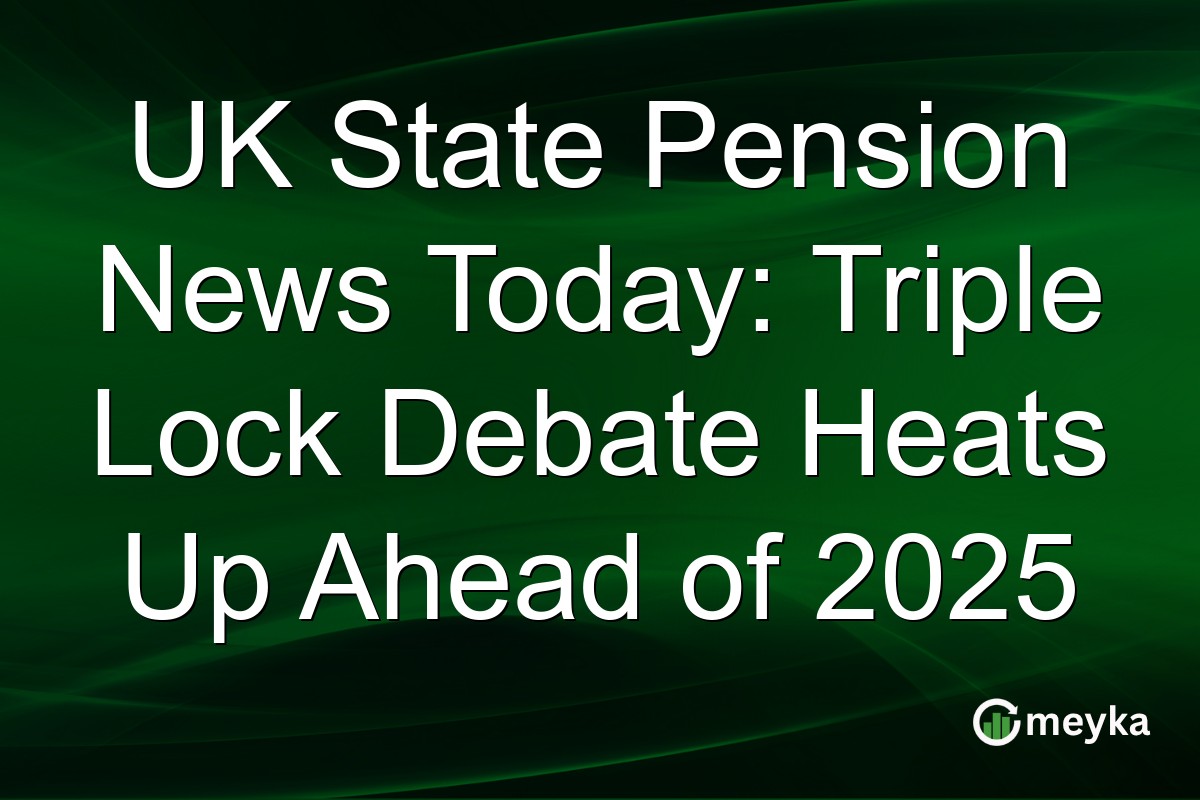UK State Pension News Today: Triple Lock Debate Heats Up Ahead of 2025
As the 2025 UK general election looms, the debate over the state pension triple lock intensifies. The policy, designed to ensure pensions rise by the highest of inflation, wage growth, or 2.5%, is under scrutiny. With inflationary pressures mounting and budget constraints becoming a concern, the future of this scheme is uncertain. This discussion has significant implications for millions of retirees who rely on the state pension for financial security.
Understanding the Triple Lock Policy
The state pension triple lock is a mechanism aimed at protecting the financial health of retirees. It ensures that pensions increase each year by the highest of three measures: the rate of inflation, wage growth, or a flat rate of 2.5%. This policy has been a cornerstone of UK retirement planning since its introduction in 2010. However, as we approach 2025, its sustainability is being questioned due to current economic challenges. Rising inflation rates are one of the primary concerns. According to the latest reports, inflation has been creeping up, leading to larger than anticipated pension increases. This situation puts immense strain on the government’s budget. Critics argue that continuing the triple lock amidst these conditions could further widen the fiscal gap. Supporters of the policy, however, stress the importance of maintaining the purchasing power of pensions. For many retirees, the state pension is their main income source, and any reductions could significantly impact their standard of living. With the general election approaching, the future of the triple lock is a hot topic among both policymakers and the public.
Financial Implications of Altering the Policy
Altering or removing the state pension triple lock could have far-reaching financial implications. Experts predict that modifying this policy might save the government billions annually. However, such savings could come at a substantial cost to retirees. Changes could mean lower pension increases and reduced income for those dependent on the state pension. According to a recent analysis, adjusting the triple lock could save roughly £5 billion per year. Yet, this potential budget relief must be balanced against the needs of pensioners, especially as the cost of living continues to rise. Some economists suggest a middle-ground approach, such as temporarily replacing the triple lock with a “double lock,” considering only inflation and wage growth. This compromise might alleviate some fiscal pressure while still providing pensioners protection against inflation.
Political and Public Reaction
The political debate surrounding the triple lock is becoming more intense. Opposing parties are weighing in, making it a central issue in the upcoming election. The Conservative Party, traditionally seen as the guardian of this policy, faces pressure from both within and outside its ranks to reconsider its stance. Public opinion is equally divided. Many retirees express concern over potential changes, fearing a decline in their living standards. On the other hand, some taxpayers support revisiting the policy, arguing for a more sustainable model. A recent survey indicates that a significant portion of the UK population believes the government should prioritize economic stability over maintaining the triple lock. Nonetheless, with the political stakes high, the government’s decision will likely be influenced by broader electoral considerations.
Looking Forward: The Future of UK Pensions
As we draw closer to 2025, the future of the UK state pension, particularly the triple lock policy, remains uncertain. Analysts are divided on the best course of action. Some advocate for maintaining the status quo, emphasizing the security it provides retirees. Others call for reform, highlighting the economic pressures and potential budgetary benefits of a change. Regardless of the decision, the government will need to carefully weigh the economic and social factors. Ensuring the well-being of retirees while maintaining fiscal responsibility will require a delicate balance. Platforms like Meyka, which offer real-time financial insights, may become more crucial in helping both policymakers and the public understand the potential impacts of various policy choices.
Final Thoughts
The debate over the state pension triple lock is likely to remain a prominent issue as the 2025 election draws nearer. Balancing the needs of retirees with economic realities poses a significant challenge. The outcome of this debate will undoubtedly affect millions of UK residents. For anyone looking to stay informed and make data-driven decisions regarding their financial future, resources like Meyka can provide valuable insights. As the situation develops, staying informed will be key for all stakeholders.
FAQs
The state pension triple lock is a policy ensuring pensions rise by the highest of inflation, wage growth, or 2.5% annually, aimed at protecting retiree income.
The policy is being debated due to rising inflation and budget constraints, questioning its sustainability and financial impact on the government budget.
Potential changes include replacing it with a “double lock,” which would consider only inflation and wage growth, easing fiscal pressure while still offering protection against inflation.
Disclaimer:
This is for information only, not financial advice. Always do your research.






